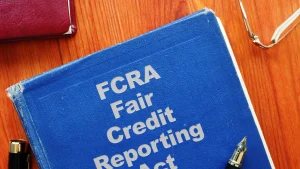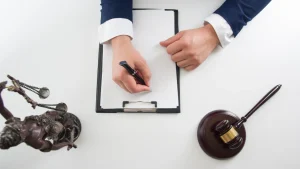Few things are more stressful than constant calls and letters about an old bill. When the messages keep coming, the threats become stronger, and the details do not add up, it begins to feel less like routine business and more like harassment. Many consumers find themselves in this position with Account Control Technologies or with related collection outfits that use very similar names.
Account Control Technology collection agency activity often shows up after a credit card, medical bill, personal loan, or education balance becomes seriously past due. Some people first learn about the company when they see a new collection entry on their credit report. Others discover it when a caller mentions the name and demands payment right away.
The purpose of this guide is to give you calm, practical steps you can take when you are dealing with Account Control Technology debt collection agency contact. You will learn who stands behind the name, how to confirm that a call is real, what your rights are under federal law, and what to do if the debt involves an Account Control Technology student loan account. You will also see how a dedicated consumer rights law firm can step in and protect you from pressure and abuse.
Understanding Account Control Technologies
Public records and industry sites describe Account Control Technologies as a major player in the accounts receivable management world. The firm has its headquarters at:
📌 21700 Oxnard Street Suite 1400
Woodland Hills California 91367
Business profiles list this company as a large Account Control Technology collection agency that works for banks, lenders, medical providers, schools, and other institutions.
Contact directories and corporate information databases list an Account Control Technology phone number with an eight one eight area code for the Woodland Hills office.
In recent years Transworld Systems announced the acquisition of the holding company that owned Account Control Technologies, folding it into a larger national recovery network. Even after such changes, people still encounter the original brand name when collection activity begins, so it makes sense to treat this as a serious collection presence with the full tools of a large recovery business.
➡️ Know more about: Accounts Management Inc phone harassment.
How your account ends up with Account Control Technology

There are two common ways that your account might land with an collection agency. In some cases the original creditor keeps ownership of the account but hires the company to collect on its behalf. In other cases the creditor sells a batch of charged off debts for a fraction of the total amount and the company then tries to recover as much as possible for itself.
This can happen with unpaid credit cards, medical balances, auto deficiencies, personal loans, and even government backed education debt. When you see the phrase Account Control Technology student loan on a letter, it often means that the United States Department of Education or a loan servicer has sent a defaulted federal student loan to the company to collect.
From your point of view the result is the same. A representative from an debt collection agency now says you owe money and begins asking for payment. You may feel as if you are starting from zero with a company you have never heard of, even though the account itself may be many years old. That is why it is so important to verify every detail before you make decisions.
Warning signs of harassment
Not every call from a collector is illegal. The law allows reasonable attempts to discuss a genuine debt. Harassment begins when the pattern or tone of those attempts would naturally make an ordinary person feel threatened, abused, or endlessly bothered. Consumers whose complaints mention an Account Control Technology collection agency often describe the same patterns.
Common signs include
- 👉 Frequent calls that interrupt you several times in a single day
- 👉 Calls that arrive very early in the morning or late at night
- 👉 Pressure to share payment information before you receive anything in writing
- 👉 Remarks that insult your character or mock your situation
- 👉 Vague threats about lawsuits, wage garnishment, or seizure of property
- 👉 Refusal to explain how the balance was calculated or who the original creditor was
When the alleged debt is an Account Control Technology student loan account, borrowers may also report threats about federal wage garnishment or seizure of tax refunds. Federal education debt carries special rules, and collectors sometimes rely on fear of those powers to push people into quick arrangements that are not in their best interest.
If you see several of these warning signs at once, you are not simply dealing with firm business talk. You may be facing conduct that fits the legal definition of harassment and violates federal law.
Your rights under the Fair Debt Collection Practices Act

When Account Control Technologies or any similar company is collecting on a personal debt, it is usually acting as an outside collector rather than as the original creditor. That matters because the Fair Debt Collection Practices Act applies to outside firms that attempt to recover consumer debts. This federal law limits what these companies can do and gives you important rights.
Under this law a collector
- ➡️ Cannot use language that is abusive or obscene
- ➡️ Cannot call at times or places it knows are inconvenient for you
- ➡️ Cannot threaten arrest or criminal charges for failing to pay a civil debt
- ➡️ Must be truthful about who it is and what it can legally do
- ➡️ Must send you a written notice that states the amount of the debt, the name of the creditor, and your right to dispute
If an debt collection agency ignores these rules, you may be entitled to statutory damages, actual damages if you were harmed, and payment of your attorney fees if you bring a successful case. Knowing that these protections exist can make it easier to stand your ground when a collector tries to intimidate you.
Special rules for student loan collections
Education debt brings its own complications. Many people first hear from Account Control Technologies because of a defaulted education balance, especially federal loans that have been transferred from the Department of Education. The phrase Account Control Technology student loan often appears in letters and online portals when this happens.
Federal student loans in default give collectors certain powerful tools. For example, agencies working for the Department of Education can issue orders for administrative wage garnishment without first winning a lawsuit in court and can request that federal tax refunds be intercepted. Private student loans do not have these automatic powers, but collectors can still sue in court and attempt to garnish wages after getting a judgment.
Even so, the same Fair Debt Collection Practices Act still applies to how any collection agency speaks to you and how often it contacts you. It cannot lie about the status of your loans, inflate the amount that you owe, or pretend that you will be arrested simply because you ask questions or consider your options.
If you are dealing with an Account Control Technology student loan issue, it is especially important to learn about rehabilitation, consolidation, and forgiveness options. A consumer rights lawyer or a student loan focused advocate can explain whether working directly with the company makes sense or whether you should pursue other routes.
How to verify that a call or letter is genuine

Scammers often pretend to be well known collection agencies. When you hear from someone who gives the name Account Control Technologies you should never feel rushed into paying on the spot. Instead, gather information and confirm it through independent sources.
Ask the caller for
- ✅ The full company name
- ✅ The mailing address
- ✅ An Account Control Technology phone number where you can reach the same department
- ✅ Your account number or reference number
- ✅ The name of the original creditor
Write these details in your notes. Then end the call and look up the company using trusted directories or consumer information sites. Compare the mailing address and the Account Control Technology phone number you find with the ones the caller provided.
If they do not match, or if you cannot find any trace of the company at all, that is a strong sign that the call may not be legitimate. You can also send a short letter to the official address you located, asking the company to confirm in writing whether it is collecting on your account. This extra step protects you from paying a stranger who has nothing to do with your real debts.
➡️ Know more about: Advanced Financial Company Phone Harassment
Keeping a detailed record of every contact
Whether your debt is a credit card, a medical bill, or an Account Control Technology student loan account, careful documentation is one of your strongest tools. Start a simple log and record every interaction related to this collector.
For each call or message note
- ➤ The date
- ➤ The time
- ➤ The number that appeared on your caller ID
- ➤ The name of the person who spoke with you
- ➤ A brief summary of what they said
- ➤ Any threats or promises they made
Save voice messages and screenshots of texts if possible. Keep each letter and envelope in a dedicated folder. Regulators and consumer law resources consistently advise people to keep this kind of record when dealing with collection agencies because it can be used as evidence if you file a complaint or lawsuit.
Requesting written validation of the debt

You do not have to rely on what a collector says by phone. Federal law gives you the right to see written details that support the amount they claim you owe. After your first real contact with an Account Control Technology collection agency, you should receive a validation notice within a short time. This letter should tell you the amount of the debt, the name of the creditor, and how you can dispute the account.
If you never receive this letter, or if the details are unclear, send your own written dispute. In your letter ask the debt collection agency to provide
- ➥ A breakdown of the amount claimed, including interest and fees
- ➥ The name and address of the original creditor
- ➥ Copies of statements or contracts that show the origin of the debt
Mail the letter to the mailing address you confirmed and keep proof of delivery. Once your dispute arrives the company should stop active collection until it sends back verification. If it keeps calling and demanding payment while refusing to provide meaningful proof, that behavior supports a claim that Account Control Technologies has violated the Fair Debt Collection Practices Act.
Setting limits on when and how they contact you
You have a say in how collection companies contact you. If calls from Account Control Technologies are disturbing your work or family life, you can set boundaries. Tell the collector that your employer does not allow personal calls to your workplace and that you do not consent to being contacted there. Explain which hours are acceptable and which are not, and say that you prefer communication in writing if calls are causing you distress.
You can also send a written letter that repeats these limits. Keep a copy for your records. If the company keeps calling your job or ringing your phone late at night after receiving such a letter, those facts can strongly support a legal claim.
In some situations you may decide to send a letter instructing an Account Control Technology debt collection agency to stop contacting you altogether, except for specific notices allowed by law. A consumer rights attorney can explain the pros and cons of this step, especially if you are managing an Account Control Technology student loan case where long term resolution may require more detailed negotiation.
Dealing with credit report entries
Many people first discover collection activity when they see a new entry on a credit report. Bureaus may list the company as Account Control Technologies, ACT, or Account Control Technology collection agency. This type of entry can lower your credit score and make it harder to qualify for loans, apartments, or certain jobs.
You have the right to dispute inaccurate or incomplete credit reporting. If a collection entry appears that you do not recognize, check your files and then send a written dispute to each credit bureau that lists the account. Explain why you believe the entry is wrong, and attach copies of any letters, payment confirmations, or account statements that support your position.
If the bureau cannot verify the information with the furnisher, it must correct or remove the entry. This applies whether the debt is from a retail account or from an Account Control Technology student loan collection. Cleaning up incorrect reporting does not erase a real debt, but it can remove unfair damage to your reputation while you sort out the underlying issue.
What to do if you are sued
In some cases collection agencies file lawsuits to recover money. If you receive legal papers naming Account Control Technologies or any similar entity as the plaintiff, do not ignore them. A court case is serious, and failing to respond can lead to a default judgment that gives the collector stronger tools to reach your paycheck or bank account.
Read the complaint and summons carefully. Note the deadline to respond. Gather your documentation, including any disputes you sent, letters you received, and any records that show payments or errors. Then contact a consumer rights law firm as soon as possible. An attorney can help you file an answer, raise defenses such as expired limitation periods, and challenge inaccurate statements. If harassment occurred, that history may also be relevant to your defense or to a counterclaim.
How Consumer Rights Law Firm PLLC can help

Facing constant contact from a large collection company can feel overwhelming. You do not have to face Account Control Technologies by yourself. Consumer Rights Law Firm PLLC focuses on helping people who are dealing with abusive collection tactics, unfair credit reporting, and complex problems such as an Account Control Technology student loan dispute.
You can reach the firm at
📌 Consumer Rights Law Firm PLLC
133 Main Street Second Floor
North Andover Massachusetts 01845
📞 Phone 877 700 5790
✉ Email help@consumerlawfirmcenter.com
When you contact the office, the team can review your call logs, letters, credit reports, and any documents related to an collection agency account. They can explain your rights, help you decide on a strategy, and take over communications so that future contact must go through your attorney rather than directly to you.
In many situations Consumer Rights Law Firm PLLC can
- ✔️ Send formal letters ordering an debt collection agency to follow the law
- ✔️ Demand complete documentation of any alleged debt
- ✔️ Negotiate settlements that resolve valid accounts on fair terms
- ✔️ File lawsuits seeking damages and orders to stop illegal conduct
In many collection abuse cases, if you win, federal law allows recovery of attorney fees, which can make it easier to get strong legal help without paying large hourly charges.
Success Stories
“What an amazing experience I had with Consumer Rights Law firm. I kept getting constant calls from a debt collector who was asking for someone I didn’t know. After explaining over and over I was not the person they were looking for, The calls still continued, it became frustrating and very annoying. I came across this firm and just called to talk to someone to see how I could get the calls to stop. I spoke to a gentleman that was very professional and very helpful. Not only did they get the calls to stop immediately, they were able to put some money in my pocket as well. Here’s the best thing, it cost me nothing for them to help me. They come highly recommended. Thank you Consumer Rights. Their expertise in negotiating settlements with debt collectors was invaluable.
“I had the pleasure of dealing with Consumer Rights Law Firm PLLC on 2 different occasions. The staff were very courteous and helpful, and they were familiar with the Collection Agencies in question. The harassment calls stopped, and I was even compensated. As a collection law firm, they provided exceptional legal assistance and ensured my rights were protected. I would recommend this company to anyone going through this type of harassment. A very satisfied customer.”
“I would highly recommend the Consumer Rights Law Firm to anybody that has been harassed! They were very professional and straightforward about my rights.”
🔗 Check out a links below for more information: Massachusetts Attorney General
FAQs
What is Account Control Technologies❓
It is the brand used for a large collection business that recovers past due debts for many different creditors, including lenders, schools, and medical providers.
Is this company real or a scam❓
Account Control Technology collection agency operations are real and have existed for many years, but like any collector they must obey debt collection laws.
What types of debts does it collect❓
The company handles many kinds of accounts, including credit cards, medical bills, service accounts, and some types of Account Control Technology student loan debt.
What is the safest way to find an Account Control Technology phone number❓
Use contact details from official directories or written notices, then call that Account Control Technology phone number instead of one given in a random message.
Can they call me at work❓
They can try once, but if you tell them your employer does not allow such calls, they must stop contacting you at that workplace number.
How do I make them prove a debt❓
Send a written dispute and request for validation asking for a breakdown of the amount, the name of the original creditor, and copies of supporting records.
What if the debt is an Account Control Technology student loan❓
Ask about rehabilitation and consolidation options and consider speaking with a lawyer or student loan adviser before agreeing to any long term plan.
Can I stop all calls from this debt collection agency❓
You can send a written request limiting or stopping contact. Some legal notices may still arrive but constant calls and pressure should end.
Will disputing an Account Control Technologies account hurt my credit❓
A proper written dispute does not by itself damage your credit score and can help remove inaccurate or incomplete information from your reports.
When should I call Consumer Rights Law Firm PLLC❓
Reach out when contact from Account Control Technologies is frequent, abusive, confusing, or when you are facing an actual or possible lawsuit.
Conclusion
It is normal to feel anxious when a large collector starts calling about a debt, especially when the name is new to you and the history of the account is long. Whether the issue is a small retail balance or a serious Account Control Technology student loan problem, you have more power than the collector wants you to believe.
By learning who Account Control Technologies really is, verifying every caller and letter, using your rights to dispute and demand proof, setting clear limits on when you can be contacted, and seeking legal help when necessary, you can move from panic to a plan. With support from Consumer Rights Law Firm PLLC BBB Profile , you can stand up to collection agency pressure, protect your credit, and work toward a fair and lawful resolution.







